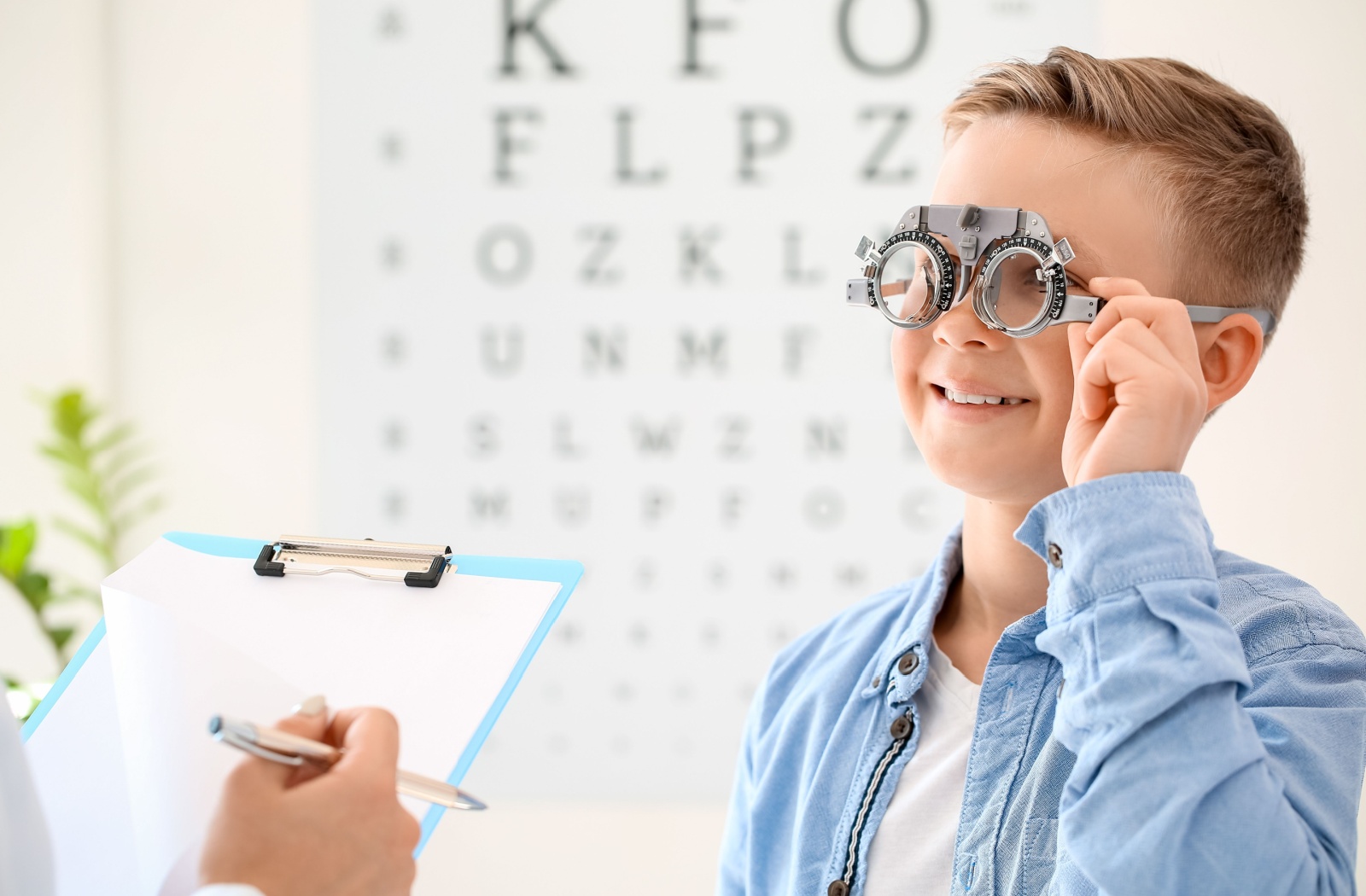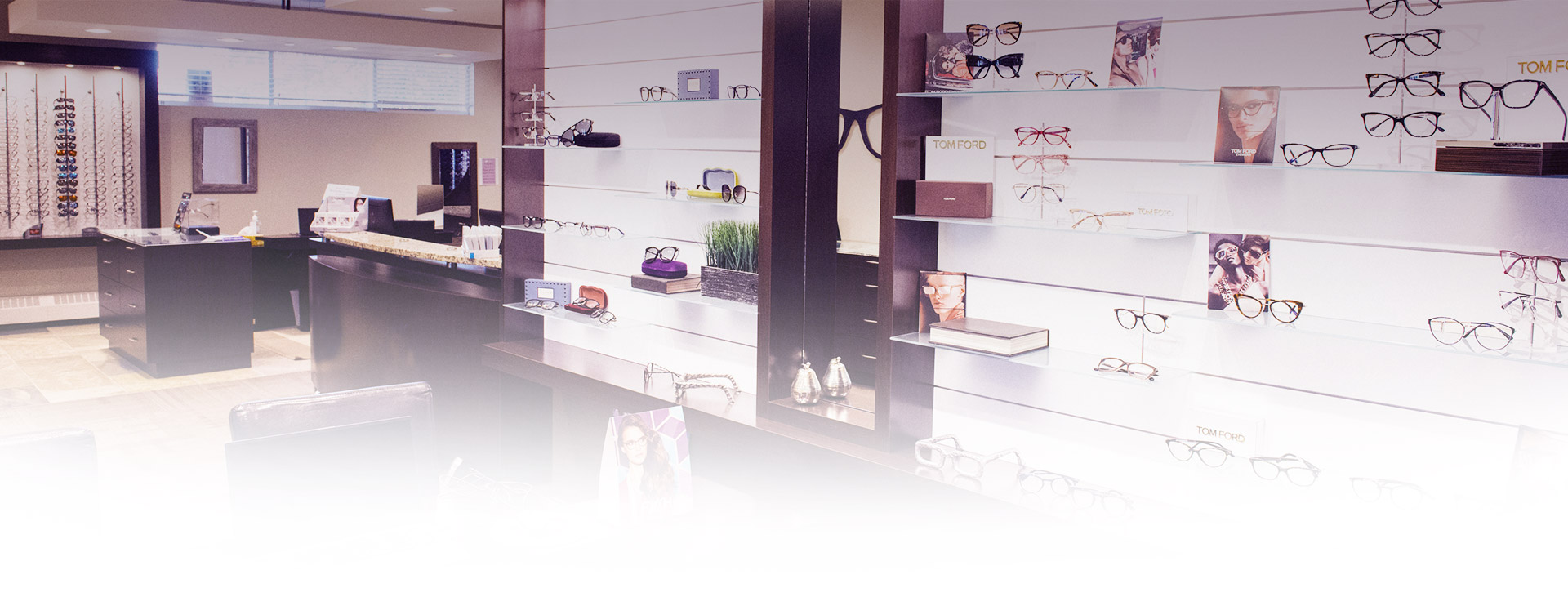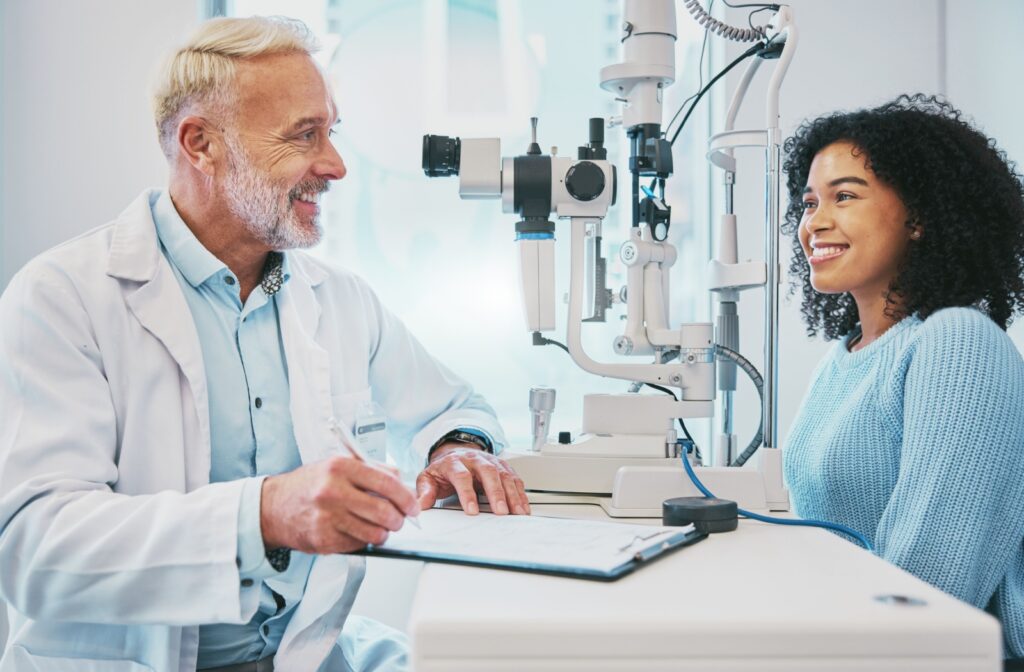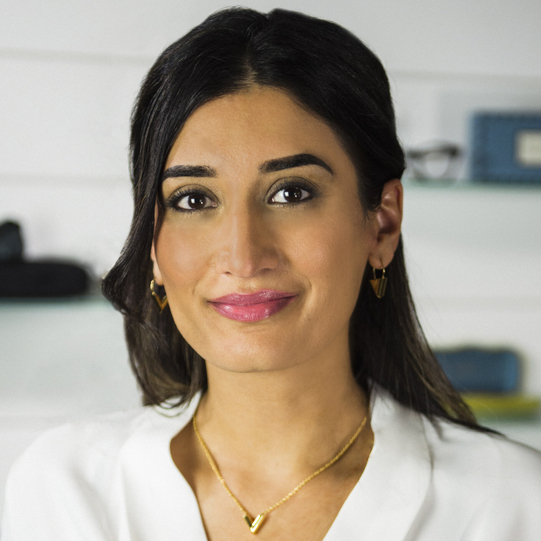Regular eye exams play a vital role in maintaining healthy vision and detecting potential issues early. But when life has you running around, you may decide to ignore the importance of your vision—until you notice eye disease symptoms.
Eye exams take time, but that time is well spent. An eye exam takes around 30–60 minutes, but its duration can vary depending on the tests needed to safeguard your eye health. An hour is a small price to pay for all eye exams can do to support your family’s vision.
The Eye Exam Process
A comprehensive eye exam involves several steps that allow us a thorough evaluation of your visual health. The tests can vary, but here’s a general breakdown of what you may expect:
Pre-exam Tests
Before seeing the optometrist, you may undergo a series of pre-exam tests. A good start may be a medical history review.
If this is your first time at your optometrist, you’ll provide information about your medical history, current medications, and any vision problems you’ve experienced. The optometrist may ask about your family history of eye diseases to identify any genetic predispositions. Of course, once you’re a regular with your optometrist, these reviews are a snap.
This early part of the exam may also involve some preliminary tests depending on what your optometrist thinks you need.
Visual Acuity Testing
A visual acuity test assesses how clearly you can see at different distances. Your optometrist will ask you to read letters on a chart or screen, usually starting with larger letters and progressing to smaller ones. This helps to gauge the sharpness of your vision and can clue us into issues such as nearsightedness (myopia) or farsightedness (hyperopia).
Refraction Test
A refraction test is the key way your optometrist determines your eyeglasses prescription, if necessary. For this test, we use an auto-refractor, a device that shines a light through your cornea and measures how light changes as it enters your eye.
We may follow up with a phoropter, a mask-like device with a series of lenses. Your optometrist will have you look through the phoropter and ask you to focus on an eye chart while we systematically change the lenses in the phoropter. You’ll be asked to compare pairs of lenses and indicate which provides clearer vision. This combination gives you the exact lens strength needed to correct your vision.
Glaucoma Testing
Glaucoma testing is an essential part of a comprehensive eye exam, as it helps detect one of the leading causes of blindness worldwide. The main way to test for glaucoma is by measuring the pressure inside your eye (intraocular pressure or IOP) with a tonometer. This device uses a puff of air or a gentle probe against your eye’s surface to check the internal pressure. High IOP can suggest glaucoma, though other factors are considered as well.
In addition to measuring IOP, an eye doctor might perform a visual field test to see if you’ve lost any side vision or retinal imaging to take detailed pictures of your optic nerve and the layer of nerve fibres in your retina. By combining the results of these tests, the eye doctor can accurately diagnose glaucoma and suggest treatments to protect your eyesight.
Eye Health Evaluation
Using special equipment, your optometrist can examine the internal and external parts of your eyes. This is crucial for identifying signs of eye diseases, that may slip under the radar.
Tools like retinal imaging allow your eye doctor to get an up-close view of your retina, the layer of light-reactive cells at the back of your eye. Many health problems’ first signs show up on the retina, as it’s the only place a doctor can see the blood vessels directly. Some of the diseases we can detect include:
- Glaucoma
- Age-related macular degeneration (AMD)
- Retinal damage/detachment
- Optic atrophy
- Papilledema
The retina can even help diagnose general health concerns such as high blood pressure and diabetes.

Children’s Eye Exams
Children’s eye exams are particularly important as they play a foundational role in a child’s overall development. Early detection of vision problems can even prevent potential learning difficulties and help children engage fully in their educational and social environments.
Your optometrist will adapt children’s eye exams to be age-appropriate and engaging. The experience should be comfortable and reassuring for children. The exam will be interactive, with explanations tailored to the child’s understanding level so they feel at ease.
Detecting and addressing vision problems early can dramatically impact a child’s development, including their ability to read, write, and engage in physical activities. We can treat conditions such as amblyopia (lazy eye), strabismus (cross-eyed), and myopia much more effectively when they’re detected early.
An early start with eye care helps lay a strong foundation for a lifetime of healthy vision.
How Often Do I Need an Eye Exam?
According to the Canadian Association of Optometrists, eye exam frequency varies by age to accommodate unique vision care needs at different life stages:
- Under 2: First exam between 6–9 months
- 2-5 years: At least 1 exam before starting school
- 6–18 years: 1 exam annually
- 19–64 years: 1 exam at least every 2 years
- 65+ years: 1 exam annually
These are general guidelines, and people at high risk of vision problems should follow their optometrist’s recommendations for more frequent check-ups.
Book Your Eye Exam Today
A comprehensive eye exam typically takes between 30 minutes to 1 hour, depending on various factors such as the complexity of your vision needs and whether additional tests are required.
This hour every year or so is crucial for maintaining good vision and overall health, as they can help identify issues before they become severe. At Visionary Eye Centre, our experienced team is here to provide personalized care and answer any questions you may have. We’ll help you make the most of your time with us.
Don’t wait—prioritize your eye health and book your next eye exam today!



